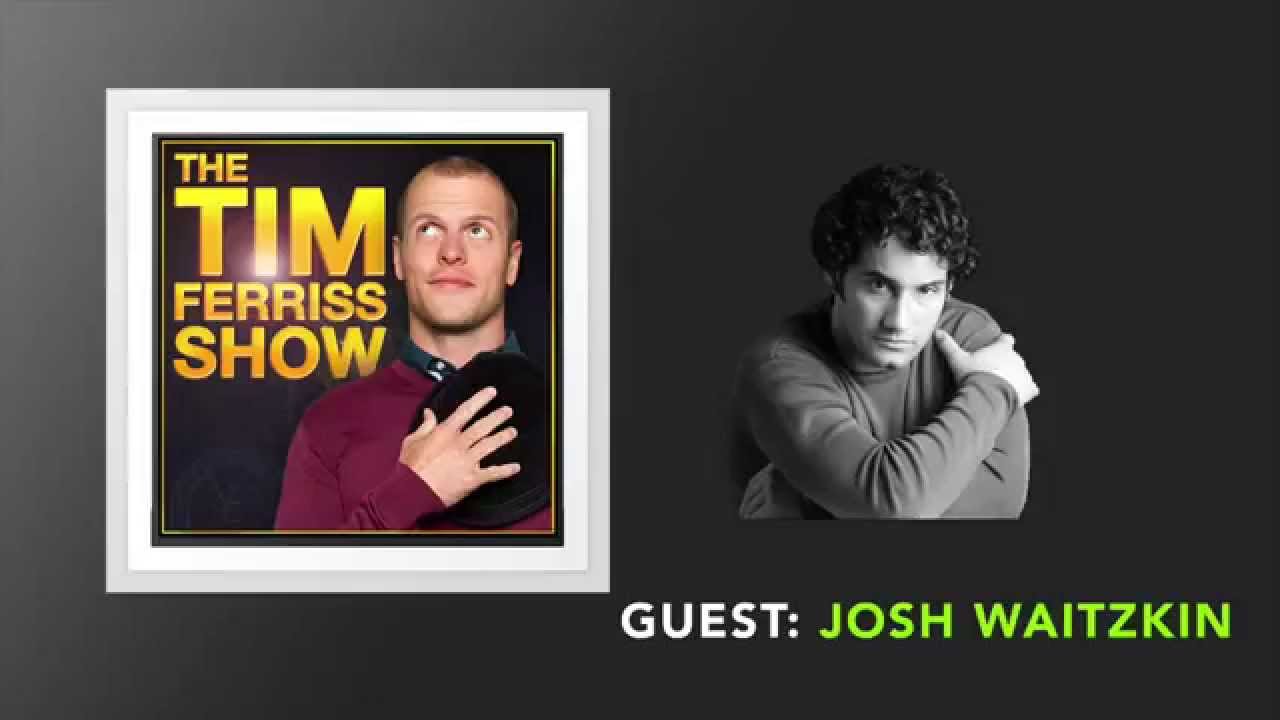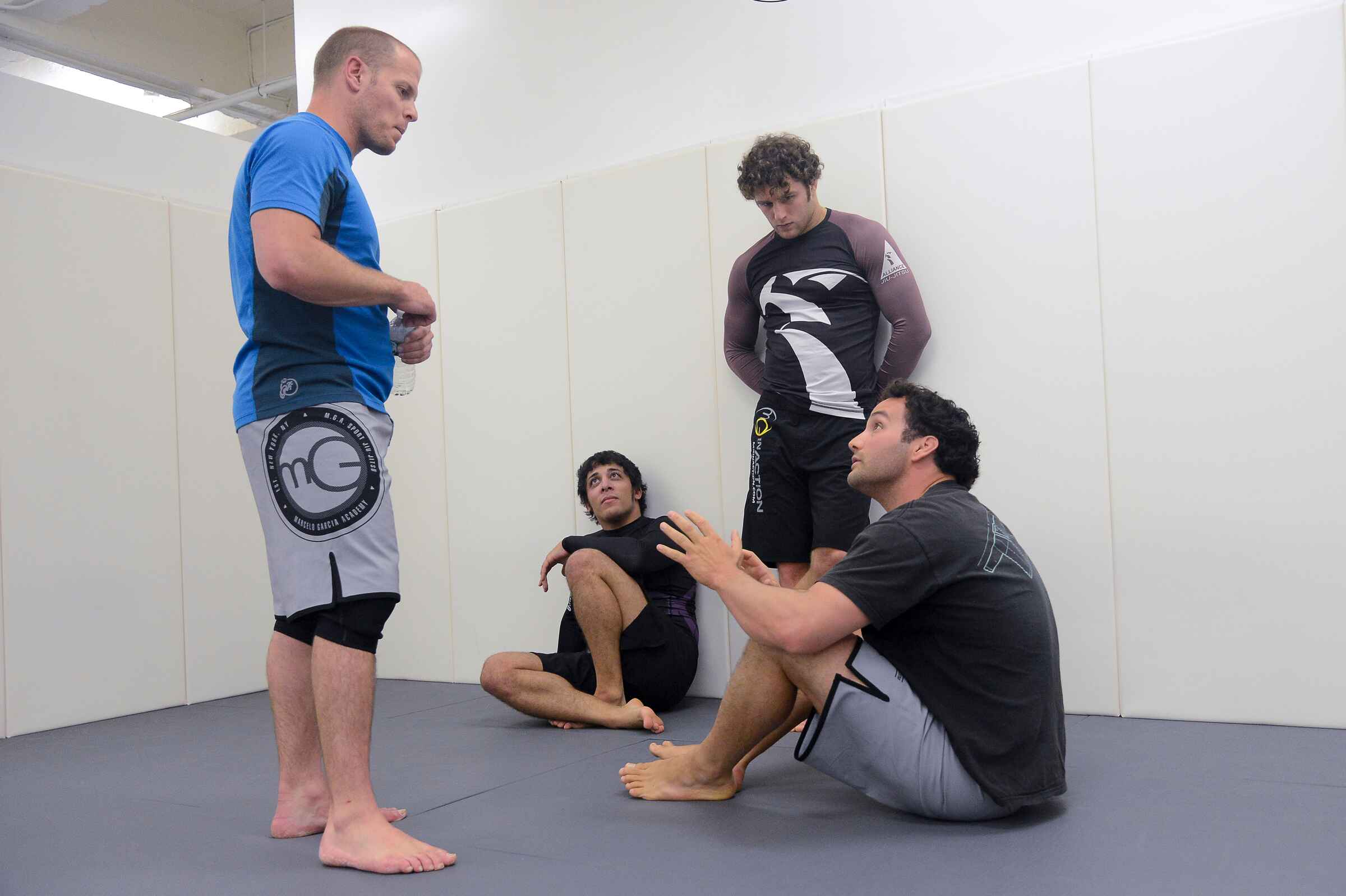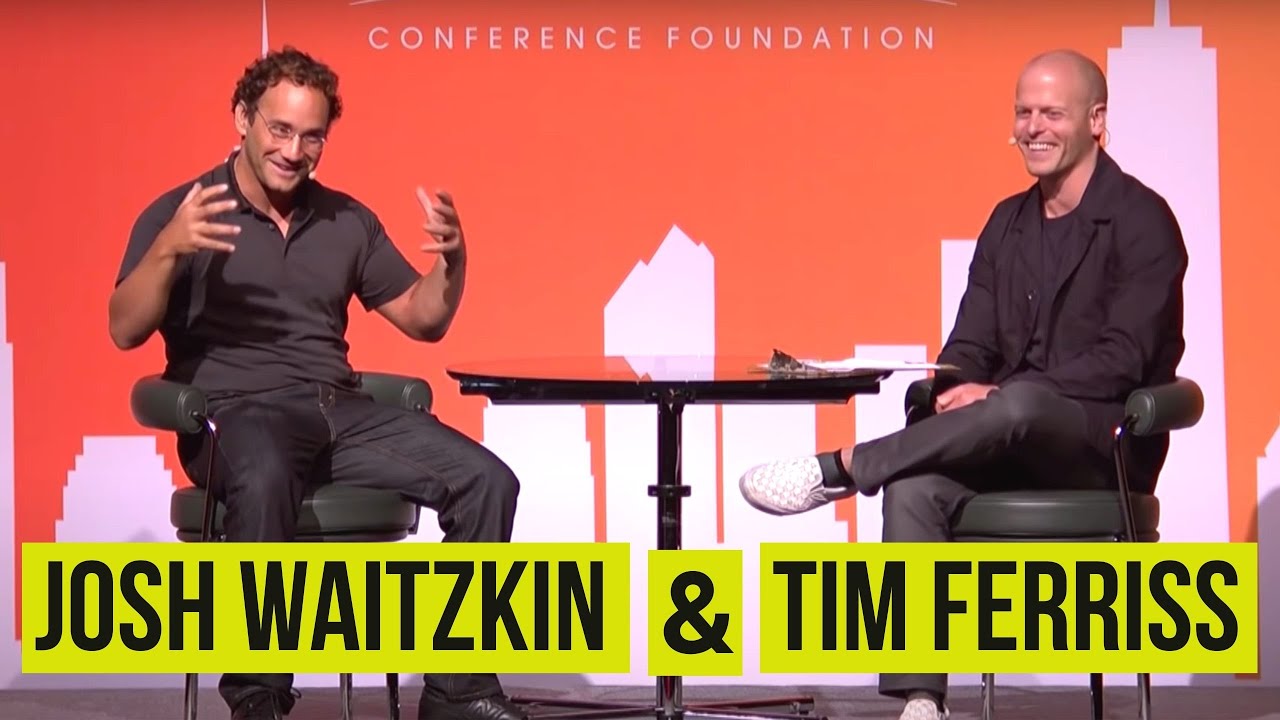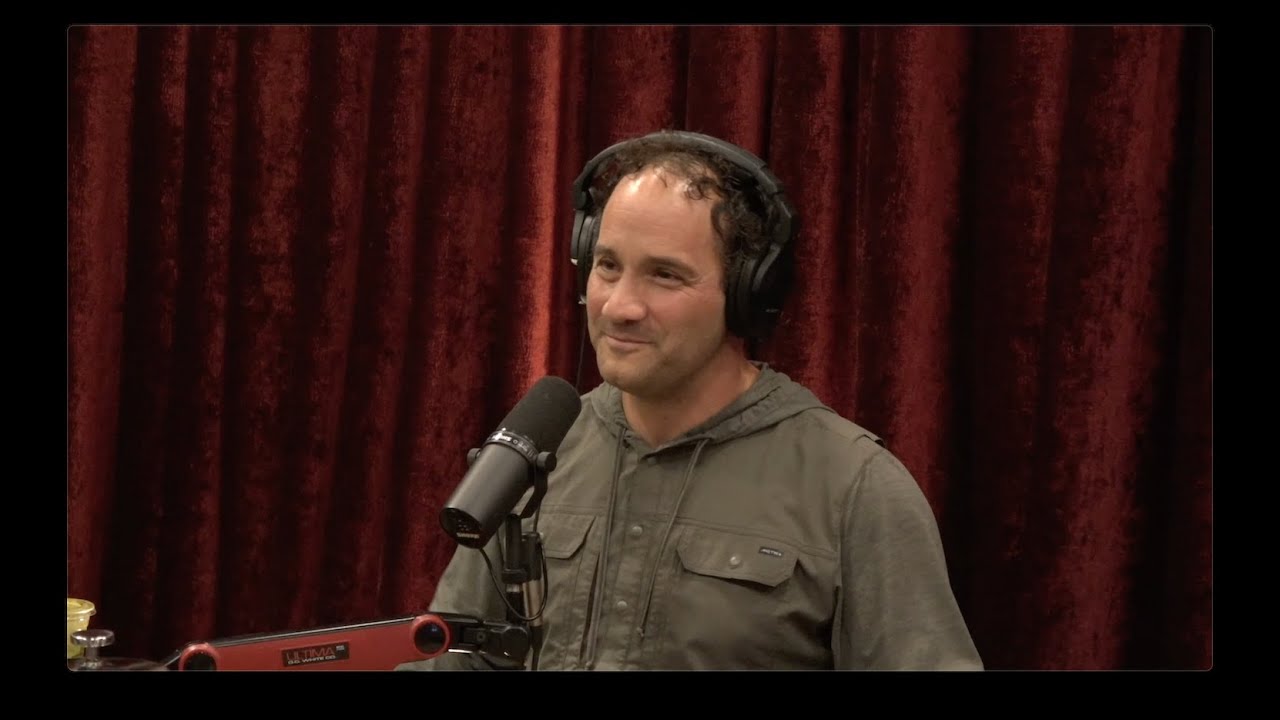
Josh Waitzkin on The Tim Ferriss Show Interview 1 Podcast Summary | 21 Key Lessons and Takeaways
Discover Josh Waitzkin's profound insights on mastery, learning, and performance from his conversation with Tim Ferriss, including the MIQ method and principles for excellence across disciplines.
Background
Tim Ferriss introduces Josh as someone who has mastered multiple disciplines - from chess (where he was considered a prodigy) to Tai Chi (where he became a world champion) to Brazilian Jiu-Jitsu (where he earned a black belt under Marcelo Garcia). Josh has since become a performance coach working with world-class athletes and top hedge fund managers, helping them optimize their learning and creative processes.
21 Key Lessons from Josh Waitzkin
1. Finding Universal Principles Across Different Disciplines
Waitzkin's journey of cross-disciplinary mastery began when he noticed principles from chess translating to martial arts:
"About two years into my martial arts life...I started to experience this very interesting transition from the principles in chess began to translate directly over into the martial arts."
This discovery led him to explore what he calls "parallel learning" - the translation of core concepts between seemingly different domains.
2. The Power of Flow States
A pivotal moment came during a chess exhibition in Memphis when playing against 45-50 opponents simultaneously:
"I began to feel like I was riding the energetic wave of the game like I was in my Push Hands training. I wasn't playing chess, I wasn't thinking in chess language, I wasn't calculating variations. I was feeling the flow."
This experience revealed how his martial arts training had transformed his relationship to chess, allowing him to access a state of flow that transcended conscious calculation.
3. Learning Through Personal Expression
Waitzkin emphasizes that mastery in any field requires authentic self-expression:
"To be world class, what you need to do essentially is express the core of your being through the art. I think that's true of many arts."
He notes that chess players can be mathematical, musical, or kinesthetic in their approach - each expressing their unique internal makeup through the game.
4. The Value of Deconstructing Intuitive Knowledge
Writing "The Art of Learning" required Waitzkin to analyze his own intuitive processes:
"A lot of that process was deconstructing what I'd been doing rather intuitively...into something that could be replicated more systematically."
This transformation of tacit knowledge into explicit principles allowed him to create a framework others could apply.
5. The Art of Playing in Transitions
Discussing his partnership with Brazilian Jiu-Jitsu champion Marcelo Garcia, Waitzkin highlights how Marcelo's approach emphasizes transitions:
"Marcelo always lets his opponents move, and so he's constantly playing in transition...if you think about what world-class martial arts means...it's playing in the in-between."
By practicing in these transitional spaces that others neglect, Marcelo develops awareness of subtleties that opponents miss.
6. The Space Between as the True Art
Extending beyond martial arts, Waitzkin embraces the concept that mastery is found in the spaces between defined positions:
"Music is the space between the notes...I think that's just a gorgeous quote. I think that most great arts are defined by that space in between."
This principle applies across disciplines, from writing to chess to fighting.
7. Seeing Ahead Through Intention Control
Waitzkin describes how high-level performance often involves controlling an opponent's intentions:
"It's amazing what can be done with intention, with controlling someone's intention...finding ways to essentially control someone's intention so that you were ahead of them even if they were ultimately moving first."
This psychological element allows masters to anticipate movements before they occur.
8. The Journey from Learning to Unlearning
While Waitzkin is known for his book on learning, he emphasizes that advanced mastery often requires unlearning:
"Much of what I've been focused on in recent years has been unlearning...it's much more about finding subtle obstructions, finding friction points, releasing them."
This process involves identifying cognitive biases and removing internal obstacles that prevent peak performance.
9. The Movement Toward Unobstructed Self-Expression
The goal of Waitzkin's coaching work is helping people express themselves freely:
"It's the movement towards unobstructed self-expression...a lot of what I'm doing with people is trying to move them from very good to great or from great to truly elite by deeply individualized work."
He compares this to releasing a crimp in a hose, allowing pressure to flow unrestricted.
10. Being True to Your Individual Path to Greatness
Waitzkin emphasizes that excellence is highly individualized:
"There are many paths to greatness...each one of these guys who's really world class is doing it his way, and he's harnessing his eccentricities."
He works with clients to help them understand their unique strengths rather than forcing them into a standardized mold.
11. Creating a Proactive Daily Architecture
When working with high performers, Waitzkin focuses on restructuring their daily routines:
"Building lifestyles that are just relentlessly proactive as opposed to reacting to inputs...building a daily architecture which is based on maximizing the creative process."
This approach prioritizes intentional creation over reactive response.
12. The Problem with Reactive Email Habits
Waitzkin specifically critiques the common habit of email checking:
"Whenever they're coming back from something, after a break, they're soaking in inputs, and so they live this reactive lifestyle. Their creative process is dominated by external noise as opposed to internal music."
Breaking this habit is essential for reclaiming creative energy.
13. Feeding the Unconscious Mind
Waitzkin shares a key technique for enhancing creativity and insight:
"Ending the work day with high quality focus on a certain area of complexity where you could use an insight, and then waking up first thing in the morning, pre-input, and applying your mind to it."
This approach allows the unconscious mind to work on problems overnight.
14. Hemingway's Creative Process
Waitzkin references Hemingway's approach to writing, which embodied the principles he teaches:
"The two core principles in his creative writing process were one, ending the work day with something left to write...and then waking up first thing in the morning and reapply your mind to it."
This method creates continuity in the creative process while leveraging unconscious processing.
15. Training for Multiple Insights Daily
Rather than waiting for occasional breakthroughs, Waitzkin helps clients systematize insight:
"There's ways of systematically training yourself to generate the crystallization experience, the aha moment...a lot of what I do is work on systems to help it happen once a day, or four times a day."
For high-level performers like fund managers, increasing the frequency of insights can have enormous value.
16. Recognizing and Overcoming Cognitive Biases
Waitzkin discusses how mental blocks often stem from outdated assessments:
"What we often have to do is release it because the position changes shape...a lack of presence which really connects to a cognitive bias, an addiction to a past evaluation as opposed to a present one."
Using the chess example of clinging to a formerly advantageous position, he illustrates how attachment to past assessments creates errors.
17. Meditation as a Tool for Deep Presence
Meditation forms a cornerstone of Waitzkin's practice and recommendations:
"Meditation is as deep and as powerful a tool as I could possibly describe...it's just an amazing way of deepening the creative process, deepening presence, expanding your energetic relationship to the world."
He notes that many top performers, including leading figures in finance, have incorporated meditation into their routines.
18. The Relationship Between Stress and Recovery
Waitzkin emphasizes the importance of cultivating both intensity and relaxation:
"You want to be turning it on and turning it off, and teaching people to turn it off is a huge part of teaching them to turn it on much more intensely."
He shares how Marcelo Garcia exemplifies this balance - able to sleep peacefully in the bleachers before a world championship fight, then perform with unmatched intensity when competing.
19. The Importance of Quality Over Quantity
Throughout the conversation, Waitzkin returns to the theme of depth versus breadth:
"My life is about quality not quantity, it's about depth and not breadth...I believe that when you're not cultivating quality, you're essentially cultivating sloppiness."
This philosophy extends to his business approach, where he focuses on "doing very, very deep, very excellent work with just a handful of people."
20. Being Wary of Second-Hand Knowledge
Waitzkin cautions against learning primarily from theorists rather than practitioners:
"We have to be very careful when we study excellence...that we're studying and tuning in to the direct experience of people who have actually been there, as opposed to the armchair professors who are talking about it."
He distinguishes between philosophers and "philosophists," writers and literary critics, artists and art critics - advocating for learning from direct practitioners.
21. Cultivating Love in the Learning Process
Perhaps most importantly, Waitzkin emphasizes that excellence ultimately stems from genuine passion:
"Whether you're talking about the beginning of the learning process or the very final surge...it's about the love. What the arm professors all forget about is the love...they have a profound passion for what they do, not only the big moments, but the little moments."
This love extends even to embracing challenges and points of resistance, transforming what others might call pain into opportunity for growth.
Personal Life and Future Directions
Waitzkin speaks movingly about his son, describing their morning routine as "the most magical part of my day." He shares his intention to eventually apply his learning methodologies to education on a broader scale, with the goal of helping children "fulfill themselves in a very deep way."
Recommended Books
During the conversation, Waitzkin mentions several influential books:
- Jack Kerouac's "On the Road" and "Dharma Bums"
- The Tao Te Ching (particularly the GF Feng and Jane English translation)
- "Zen and the Art of Motorcycle Maintenance" by Robert Pirsig
- "Shantaram" by Gregory David Roberts
- Ernest Hemingway's works, particularly "For Whom the Bell Tolls," "Green Hills of Africa," and "A Moveable Feast"
- "Hemingway on Writing" - a compilation of Hemingway's thoughts on the creative process
Conclusion
This rich conversation between Waitzkin and Ferriss offers valuable insights for anyone interested in learning, performance, and personal development. Through these 21 lessons, Waitzkin provides a framework for mastery that transcends specific disciplines.
His cross-disciplinary approach, emphasis on internal barriers rather than external techniques, and focus on quality over quantity provide a refreshing counterpoint to conventional productivity advice. Above all, his reminder to cultivate love for the process - including its challenges - serves as an inspiring guide for approaching any pursuit.
Applying These Principles with MIQ Journal
The MIQ Journal approach is directly inspired by Josh Waitzkin's methods, particularly his emphasis on leveraging the unconscious mind through evening questions and morning reflection. By implementing this simple yet powerful practice, you can begin to experience the same types of insights and breakthroughs that Waitzkin helps cultivate in world-class performers.
- Listen to the full Tim Ferriss podcast episode with Josh Waitzkin here
- Explore Josh Waitzkin's book The Art of Learning for more insights into his approach to mastery
- Start implementing the MIQ method in your own life with MIQ Journal
Transform Your Thinking with MIQ Journal
Join a tribe of professionals who are unlocking deeper insights and better decision-making through the power of evening questions and morning reflection.
Recommended Articles

Explore Josh Waitzkin's profound insights on flow states, near-death experiences, training methodologies, and cultivating intuition from his second conversation with Tim Ferriss.
Read more →
Josh Waitzkin shares powerful insights on how he compresses months of deliberate practice into single days through his systematic approach to learning, the MIQ method, and optimal day structuring.
Read more →
Explore Josh Waitzkin's profound insights from his Joe Rogan interview on mastery, learning, and personal growth across multiple disciplines.
Read more →